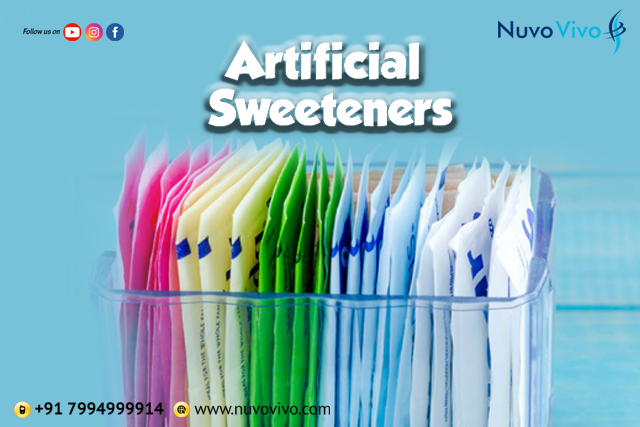Artificial sweeteners, popularly known as sugar-free, are chemical substances that are several times sweeter and contain almost zero calories. They are hence used for weight loss and also to control diabetes. While they are claimed to be safe, there are also claims about them causing cancer, impairing gut health, etc. Let’s analyse artificial sweeteners today!
The commonly used table sugar is sucrose which has calories and can cause a sudden increase in glucose (blood sugar) in the blood. This means, your body (pancreas) has to respond immediately by secreting insulin – a molecule that helps to transport glucose out of blood, thereby regulating the glucose levels in the blood. In type 2 diabetes (most common), the insulin is unable to do this task and the blood sugar levels stay elevated.
Those with diabetes can surely benefit from sugar-free, as they provide a sweet taste without an accompanying increase in the blood sugar levels or extra calories. Also, unlike sugar, the sugar-free does not react with bacteria and hence does not cause tooth decay.
There isn’t any conclusive research evidence yet about sugar-free causing cancer or gut issues. The US & European authorities of health have both confirmed that sugar-free when consumed in recommended amounts, does not pose any risk to health and does not cause cancer. However, a very small % of the population is allergic to it and can get breathing difficulties, skin rashes, diarrhea, etc.
The most commonly used artificial sweeteners are Sucralose (Splenda), Aspartame, Saccharin. They are used in diet drinks (diet pepsi, coke zero, Redbull zero etc). There is also an organic variant to it – stevia! The commonly available SugarFree Gold is Aspartame, while SugarFree Natura is Sucralose. The recently new SugarFree Green is Stevia.
While there isn’t any research evidence that sugar-free causes health problems, and are generally thought to be safe, at the end of the day, they are chemicals that are not organic in nature. We suggest you also try stevia – a natural and organic derivative of sugar-free that is made from the stevia plants, that has all the benefits of the sugar-free. However, they have a slightly bitter after-taste. Some stevia brands have less after taste, hence chose the brand that best suits your taste buds!

